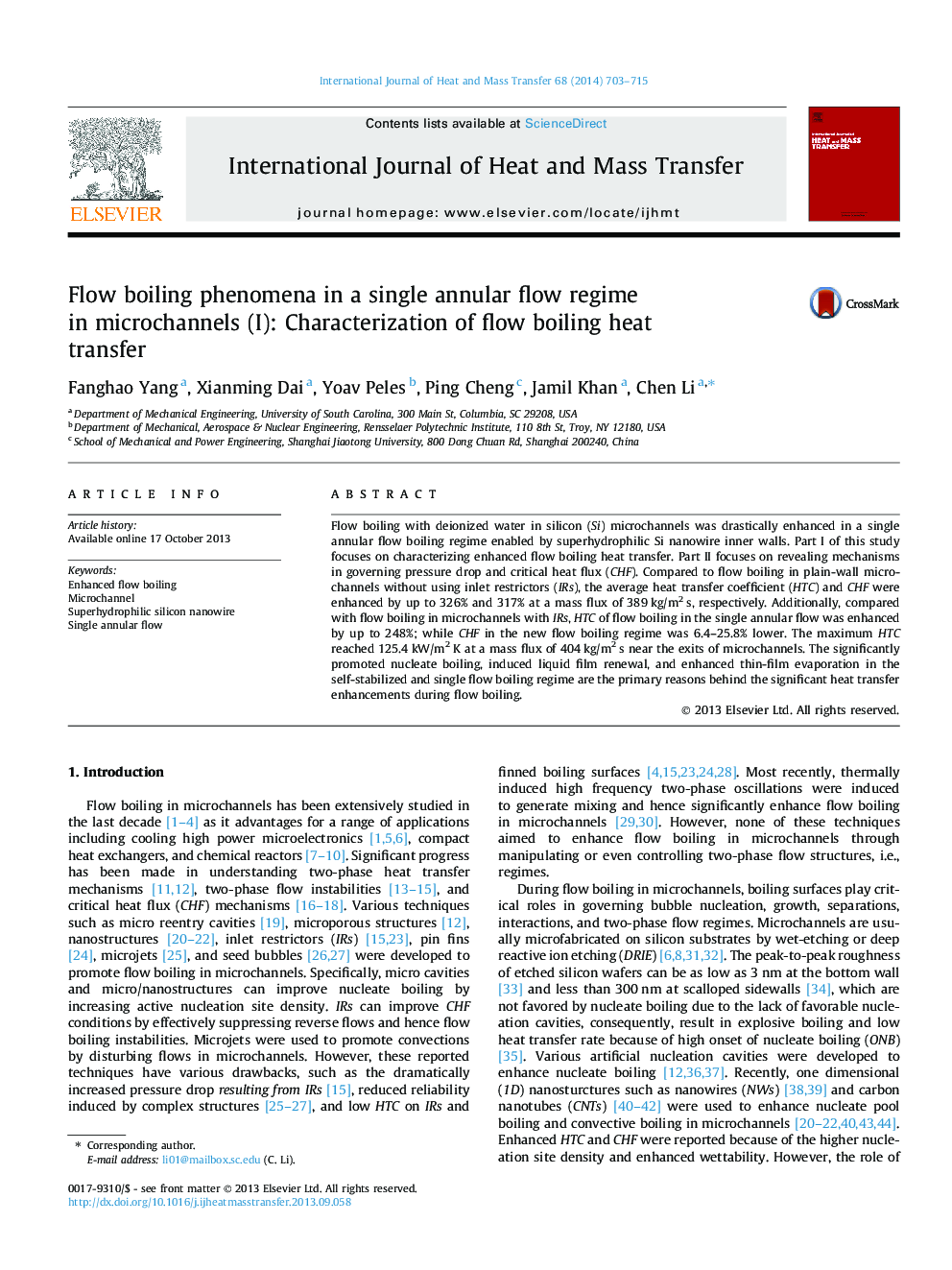| Article ID | Journal | Published Year | Pages | File Type |
|---|---|---|---|---|
| 658084 | International Journal of Heat and Mass Transfer | 2014 | 13 Pages |
Abstract
Flow boiling with deionized water in silicon (Si) microchannels was drastically enhanced in a single annular flow boiling regime enabled by superhydrophilic Si nanowire inner walls. Part I of this study focuses on characterizing enhanced flow boiling heat transfer. Part II focuses on revealing mechanisms in governing pressure drop and critical heat flux (CHF). Compared to flow boiling in plain-wall microchannels without using inlet restrictors (IRs), the average heat transfer coefficient (HTC) and CHF were enhanced by up to 326% and 317% at a mass flux of 389Â kg/m2Â s, respectively. Additionally, compared with flow boiling in microchannels with IRs, HTC of flow boiling in the single annular flow was enhanced by up to 248%; while CHF in the new flow boiling regime was 6.4-25.8% lower. The maximum HTC reached 125.4Â kW/m2Â K at a mass flux of 404Â kg/m2Â s near the exits of microchannels. The significantly promoted nucleate boiling, induced liquid film renewal, and enhanced thin-film evaporation in the self-stabilized and single flow boiling regime are the primary reasons behind the significant heat transfer enhancements during flow boiling.
Keywords
Related Topics
Physical Sciences and Engineering
Chemical Engineering
Fluid Flow and Transfer Processes
Authors
Fanghao Yang, Xianming Dai, Yoav Peles, Ping Cheng, Jamil Khan, Chen Li,
